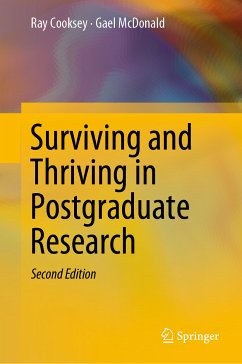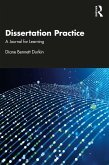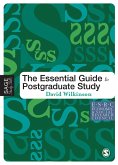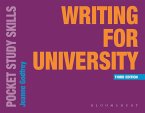This handbook provides an in-depth exploration of the entire journey of postgraduate research in the social and behavioural sciences, from enrolment to its culmination in the form of a thesis, dissertation or portfolio, and beyond. It is written in an accessible and example-rich style, offering practical and concrete advice in virtually all areas. It also includes references to additional resources and websites, and each chapter features key recommendations for improving the postgraduate research experience.
The book addresses not only research-related aspects (e.g. supervisors; selecting your guiding assumptions; contextualising, framing and configuring research; reviewing literature; sampling; writing proposals; ethics and academic integrity; selecting a data gathering strategy; surviving your thesis/dissertation/portfolio examination; and publishing), but also questions concerning how to integrate, manage, and balance the research journey in the context of the postgraduate student's broader life-world (e.g. skill development and supervisor relations; effective time and project management; a healthy work-life balance; maintaining motivation; and dealing with criticism). The book adopts an explicitly pluralist perspective on postgraduate research, moving beyond mixed methods thinking, and offers concrete examples from postgraduate students' real-world experiences.
Dieser Download kann aus rechtlichen Gründen nur mit Rechnungsadresse in A, B, BG, CY, CZ, D, DK, EW, E, FIN, F, GR, HR, H, IRL, I, LT, L, LR, M, NL, PL, P, R, S, SLO, SK ausgeliefert werden.









